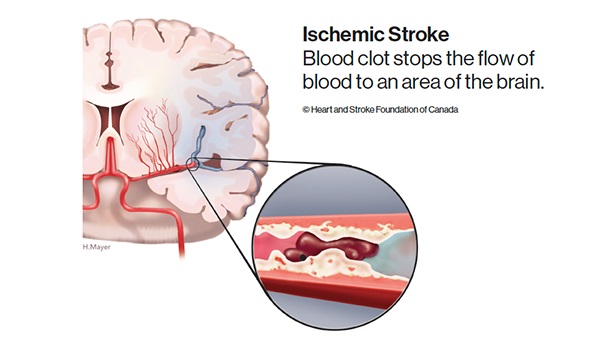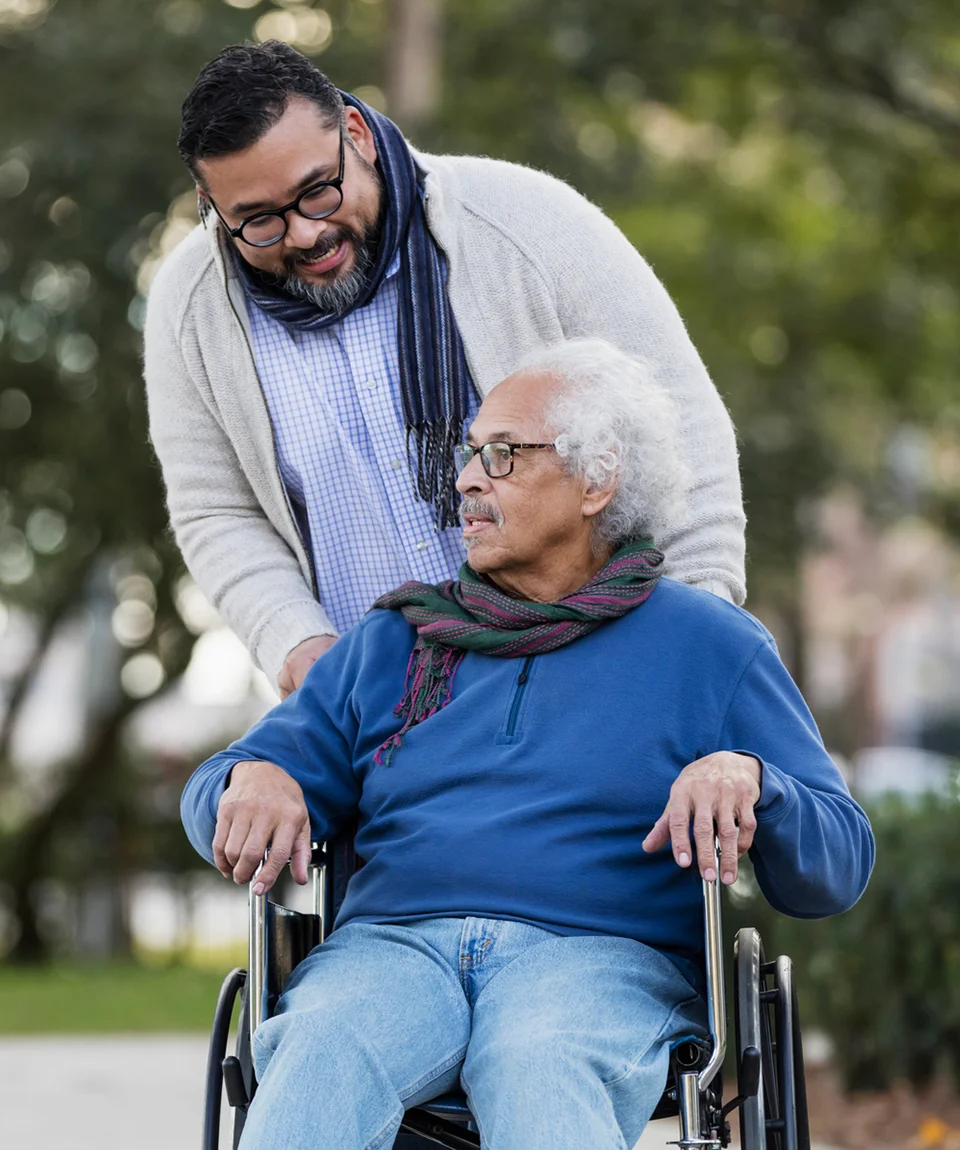A stroke happens when blood stops flowing to any part of your brain. This interruption causes damage to the brain cells which cannot be repaired or replaced. The effects of your stroke depend on the part of the brain that was damaged and the amount of damage done.
Some treatments that can help reduce the effects of a stroke are time sensitive. For example, a person having a stroke caused by a blood clot can receive a clot-busting drug within 4 1/2 hours after symptoms begin. That makes it important to know the signs of stroke and to call 9-1-1 right away. Do not drive — an ambulance will ensure you get to a hospital most able to treat stroke.
Ischemic stroke
Most strokes are caused by a blockage or clot in a blood vessel in your brain. This is called ischemic stroke.
The blockage can be caused when a substance called plaque builds up on the inside wall of an artery. The blockage or clot grows as blood cells and fat cells stick to the plaque. Gradually, it grows big enough to block normal blood flow.

The blockage or clot can form in an artery in your brain. Or, it can form in an artery in another part of your body and travel to the brain.
Transient ischemic attack (TIA)
A transient ischemic attack (TIA) is caused by a small clot that briefly blocks an artery. TIA and minor ischemic stroke fall along a continuum. TIA symptoms disappear completely within 24 hours (usually within one hour). If any symptoms still exist after 24 hours, then it would be considered a stroke, not a TIA. A TIA can be a warning of a future stroke. They are a medical emergency. Call 9-1-1 or your local emergency number immediately, do not wait. Learn more about TIA.
Hemorrhagic stroke
Hemorrhagic stroke is caused when an artery in the brain breaks open. The interrupted blood flow can cause brain cells to die leading to injury to the brain.
High blood pressure makes arteries weak over time. It is a major cause of hemorrhagic stroke. Weak spots in the arteries called aneurysms can stretch too far and eventually burst.
Cerebral Venous Thrombosis (CVT)
CVT occurs when a blood clot blocks a vein draining blood from the brain. Symptomatic CVT, where the diagnosis is associated with neurological symptoms, is a medical emergency. Diagnosing CVT is difficult because symptoms differ from the most typical signs of stroke (FAST – Face, Arms, Speech Time). The initial clinical assessment of confirmed or suspected CVT includes urgent and appropriate neuroimaging and clinical evaluation.
For more information, please view the Cerebral Venous Thrombosis Infographic.
Other causes
In rare cases, an underlying condition such as a tumour, an infection, or brain swelling due to an injury or illness can cause a stroke. Some people have irregularities in their arteries at birth that can cause a stroke later in life.
How can a stroke affect my body?
The effects of stroke are different for each person. They can be mild, moderate or severe. The severity depends on factors such as:
- the type of stroke (ischemic or hemorrhagic)
- the side of the brain where the stroke occurred (right or left hemisphere)
- the regions of the brain affected by the stroke
- the size of the damaged area in the brain
- the body functions controlled by the affected area
- the amount of time the brain area had no blood flow
- the time it took to get to hospital.
